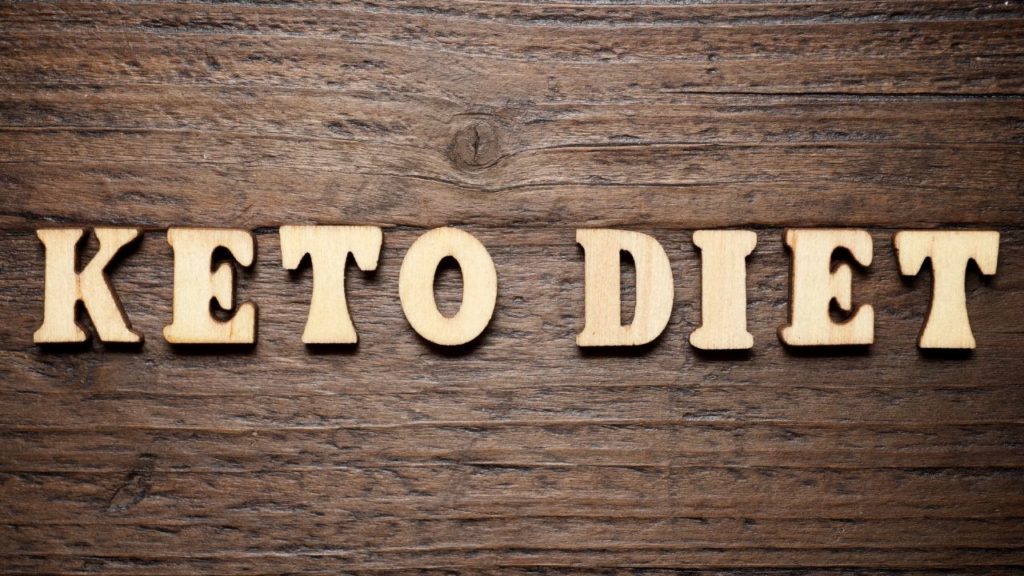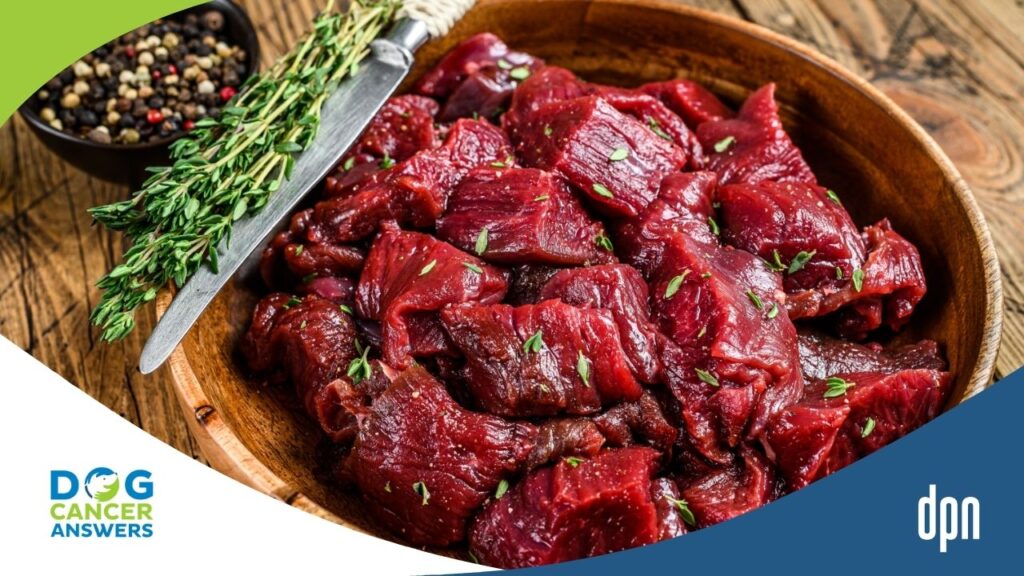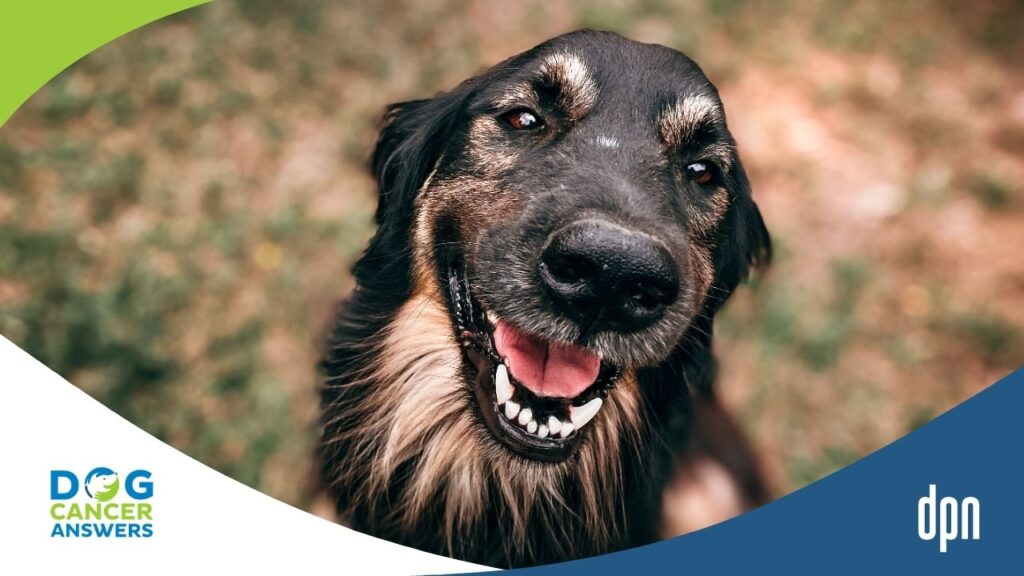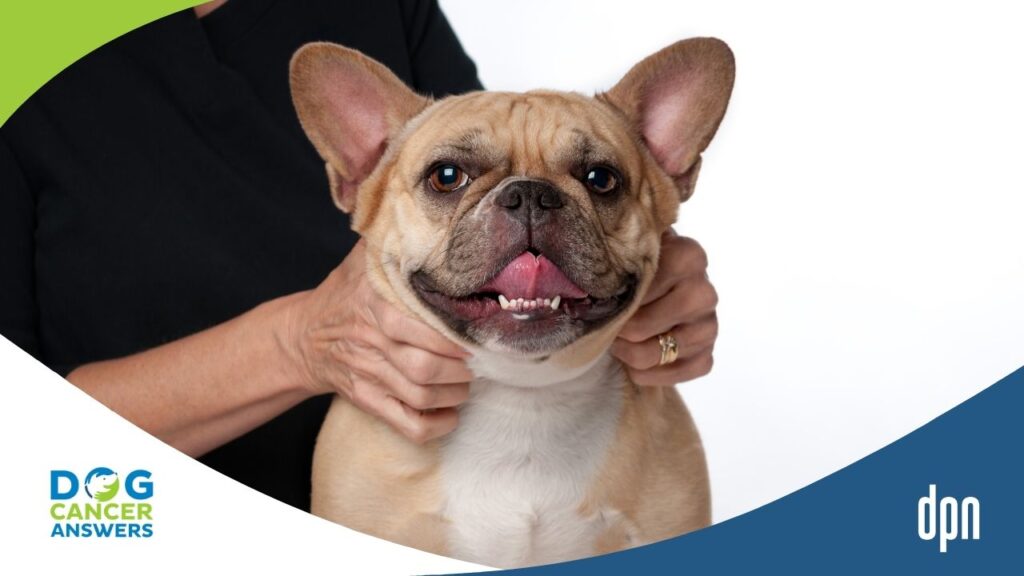EPISODE 135 | RELEASED October 4, 2021
Grain Free Diets and Dilated Cardiomyopathy | Dr. Nancy Reese, DVM, PhD and Dr. Kendra Pope, DVM, DACVIM Deep Dive
Pat called in with two questions: why didn’t her vet find her dogs’ cancers sooner, and does grain-free dog food cause heart disease?
SHOW NOTES
Today’s episode touches on the challenge of diagnosing cancer, and then dives into diet-related dilated cardiomyopathy (DCM).
In 2018 the FDA reported an increase in DCM in dogs that do not fit the typical profile for breeds predisposed to this heart condition, and a correlation with grain-free, boutique diets that are high in legumes.
Research is still ongoing to find out exactly why these diets are associated with DCM in dogs. Dr. Nancy Reese, Dr. Kendra Pope, and vet tech Kate Basedow weigh in on the different factors you need to consider when choosing what to feed your dog.
Links Mentioned in Today’s Show:
The Dog Cancer Survival Guide: Full Spectrum Treatments to Optimize Your Dog’s Life Quality and Longevity by Dr. Demian Dressler and Dr. Susan Ettinger.
Volition’s Nu.Q™ Vet Cancer Screening Test at Texas A&M
Cummings Veterinary Medical School at Tufts articles on diet-related DCM
Related Links:
WSAVA Guidelines on Selecting Pet Food
FDA Investigation into Potential Link between Certain Diets and Canine Dilated Cardiomyopathy
[00:00:00] >> James Jacobson: Today’s sponsor is the Dog Cancer Survival Guide, a must read book if your dog has cancer. To get a free excerpt on what to feed your dog, go to DogCancerDiet.com. You’ll get Dr. Demian Dressler’s Dog Cancer Diet and help your dog with their next meal. That’s DogCancerDiet.com to get an excerpt – for free! – of the Dog Cancer Survival Guide.
[00:00:27] >> Dr. Nancy Reese: In that time, we’ve certainly known that, okay, we haven’t seen this type of heart disease with these big name brands. So it doesn’t mean that the small brands can’t have good outcomes. It’s just, we know these big brands have been around a while and haven’t caused that particular problem.
[00:00:44] >> Announcer: Welcome to Dog Cancer Answers, where we help you help your dog with cancer.
Here’s your host, James Jacobson.
[00:00:52] >> James Jacobson: Hello friend, and welcome to Dog Cancer Answers. We are going to go back to our proverbial mailbag, or I guess we should call it a voicemail bag, and take a listener question that was given to us from Pat in Maryland. Now she has a very common question and we’re going to take it in two parts.
However, this is going to be a slightly unique episode because we are going to get input from not one, not two, but three members of the veterinary community. That’s because one of Pat’s questions is about the recent concerns on grain-free dog food causing something called dilated cardiomyopathy. That is a big word, and this is a complex issue and research is still ongoing, and we’re going to get into some of that in our conversation with these three experts. First up to answer Pat’s questions, we are joined by our chief medical editor, Dr. Nancy Reese, who has been a practicing veterinarian for three decades now, and also has a Master’s degree in Preventative Veterinary Medicine and a PhD in Epidemiology.
Then after Nancy, we will be joined by our integrative oncologist, Kendra Pope, for some details on the relationship between diet and heart issues in dogs. And then finally we turn to our associate producer and a licensed veterinary technician, Kate Basedow to break down what the veterinarians have said and to give you some practical advice on how to make diet choices for your dog.
So to start off, we are here with Dr. Nancy Reese to answer a Pat’s first question. It relates to why her vet didn’t find the dog’s cancer.
[00:02:41] >> Pat: Hi, this is Pat from Valley Lee, Maryland. I have two questions. One, how come, my vet has not been able to determine that my dog had cancer and was dying in a short amount of time?
One of my dogs had her teeth cleaned and five days later, she died from hemangiosarcoma. And my other guy had a completely clean bill of health, and a week later I found him home, dead. Both Golden Retrievers.
[00:03:07] >> James Jacobson: Okay Dr. Nancy, what say you about why didn’t my dog find this cancer sooner? I was just in there!
[00:03:13] >> Dr. Nancy Reese: Boy, I really can relate to how frustrating that is, and being on the other end of that, we really hate to have that type of situation as well. The sudden and dramatic change that hemangiosarcoma in particular can produce, it makes it one of the most frustrating diseases, and the thing I dread the most. Probably the biggest problem is that it’s a very silent but deadly type of cancer. A lot of cancers have external signs.
There may be a lump or bump, or the animal’s not eating, or there’s some other change, but with hemangiosarcoma in particular, it’s hidden so far and it’s often in the spleen or the liver or the heart, and it doesn’t cause any functional changes to those organs. So it’s not until a tumor gets big enough, or ruptures open, or starts causing secondary signs that can, it can easily be discovered.
And it’s so frustrating, and unfortunately, incredibly common in Golden Retrievers. And I have personal experience with that as well. So even with something like blood work, which we’re always recommending as, you know, the animal doesn’t feel good, we’re doing blood work, or the animal’s undergoing a dental procedure, we would do blood work to make sure the anesthesia is okay.
But very rarely is there any indication on regular blood work where something like this type of cancer will show up. In fact, up until recently, we really don’t have many blood test options for cancer. So that’s been a really frustrating thing. Occasionally the red blood cells might be misshapen enough that could indicate that maybe they have hemangiosarcoma, but that’s really not a common finding. So you have these horrible tumors that are rapidly growing, but they’re hidden in body locations and don’t cause signs until, oftentimes, it’s too late.
[00:05:10] >> James Jacobson: And she had two dogs, one with hemangio, and then – it just is really, really, sad when that happens, but it’s just not going to be picked up on normal blood work.
[00:05:20] >> Dr. Nancy Reese: Right. The one encouraging things is that, and I’m not incredibly familiar with these, um, but there are two new blood tests out that are going to be used for screening for multiple types of cancers. And I think it had, um, the one of them had like an 89% chance of detecting hemangiosarcoma early. I don’t know how early that happens, but, that, in terms of if you have a Golden Retriever to be able to get this test done regularly and catch something way earlier, if this pans out, it will be just such a blessing for us.
[00:05:57] >> James Jacobson: Oh do you know more about that screen?
[00:06:00] >> Dr. Nancy Reese: I could find out. The one that I’m, I can’t say I’m that familiar with either one of those, but the one I’m more familiar with is through the Texas A and M University, they have developed it.
It sounds like it’s a pretty darn good test. I think it had a detection rate of 74% for lymphoma. And so I think this is it’s kind of designed for breeds that are at high risk, and you test them, but one thing I don’t know is how far in advance. Like can you test them at two years age, then they’ll predict it, or does it have to be, they’re already starting with a little bit, just not detectable, and they’re 10 years old…
so I think it’d be a great, great thing to look into and potentially have a podcast about that.
[00:06:39] >> James Jacobson: We should do that! And for now, we will definitely put the link to that Texas A&M information. So if you want to find out more yourself, until we do an episode, you can. We’ll, we’ll add that to the show notes. So Pat also had another really interesting question about diet, but first let’s take a break, and when we come back, we’ll kind of try to unravel this discussion about kibble and raw and home cooked. We’ll be right back.
So on today’s show, we are hearing a listener question from Pat in Maryland, who also asked a question about diet.
[00:07:19] >> Pat: My second question is what are we supposed to do, who, with the diet issue and the kibble, and of those, having to feed them the five name brands because of dilated cardiomyopathy, especially with Golden Retrievers?
My dogs used to always eat raw and home-prepared, and one of my dogs has a slow heart rate and, um, my vet recommended that she has to eat kibble and one of the five main brands. And I feel terrible about that because I just don’t think it’s a very good diet. So I add other food to it. So she’s probably not getting the balanced diet either! Thank you.
[00:07:57] >> James Jacobson: So, Dr. Nancy: Diet, what do you think?
[00:08:01] >> Dr. Nancy Reese: I have to say, this is a question or a comment that probably comes up on a weekly basis, if not a daily basis.
[00:08:09] >> James Jacobson: I was going to say, have you ever heard this before?
[00:08:11] >> Dr. Nancy Reese: Absolutely. So the concern has been that in the past, oh, several years, I don’t remember when it first started, but in the past several years, cardiologists were starting to see more cases of a particular type of heart disease, as she mentioned, called dilated cardiomyopathy. And these hearts that have this get really big and very weak. And so they don’t pump very effectively and the dog ends up with signs of congestive heart failure. Now we know that some breeds are more prone to the traditional dilated cardiomyopathy, and Golden Retrievers have to be on that list sadly, and, um, there’s some other breeds as well. But the cardiologists were starting to see more cases of this in young dogs, or even middle-aged, but of breeds that were not typically associated with it. So they started thinking, well there has to be something in common with these different breeds that’s leading to this heart disease, and through investigation and the start of the scientific process, which we’ve talked about before, they started trying to focus on, could it be something environmental or toxic or dietary. And the finding was that in a large majority of these new types of dilated cardiomyopathy, that they were on grain-free diets.
And, big thing is that it doesn’t mean that every dog on a grain-free diet is going to develop it. So there’s, there’s gotta be some probably co-factor that’s involved that- They’re sort of narrowing it down, the latest thinking is that it might be peas and lentils used as a substitution for grain that there might be a higher incidence in those particular types of diets.
They’re trying to add it in substitution of grains. And, you know, again, we don’t know if it’s, is it those ingredients themselves, or are they blocking the absorption of something else that’s important? There’s things like um, taurine that’s important for hearts and they thought, well, maybe these dogs have low taurine levels, and that doesn’t really seem to be the case, but sometimes they’ll recommend supplementing these dogs with taurine anyhow just because again, we’re still trying to figure out what the magic fix is. One of the things that I find fascinating, because I think we as humans do this all the time, is that we start looking at one thing to quote "blame" for something happening. So a lot of the grain-free stuff I think started because people said corn was bad, and you know, my dog’s itchy because it’s on a corn-based food or a grain-filled food, and that corn is, has all these bad features. And I honestly don’t know whether corn is good or bad, but I will say, I see just as many itchy dogs on grain-free diets as I do on the cheap corn-based foods. So it seems to be when we focus on one aspect and like, okay, we’ll get rid of corn, and it’s a grain, so we’re going to get rid of all grains and put something else in, I think we lose the whole picture type of thing. So again, not every dog on a grain-free diet is going to have this problem, but there’s something going on that we need to start looking into. And and they are working on trying to do that.
The idea behind, I think she said the big five companies, and it doesn’t actually have to be a kibble food. It’s often just – the problem seems to be with what they call "boutique" diets. So some of these potentially small companies that are making these – and they look like really high-quality foods when you read the ingredients – but they may not have had the finances and resources available to do significant diet trials for a long period of time. So there’s feeding trials that the big companies, again, have the money to be able to do to sort of prove that their diets are balanced and complete and safe for the long-term. Those feeding trials actually aren’t long enough to see something like this dilated cardiomyopathy show up, but they start with the feeding trials, they know that it’s safe and good for awhile, and then these foods have been around for, you know, 20 or 30 years. So in that time, we’ve certainly known that, okay, we haven’t seen this type of heart disease with these big name brands. So it doesn’t mean that the small brands can’t have good outcomes, it’s just we know these big brands who’ve been around a while and haven’t caused that particular problem. So, and then it makes it really tough because we all want to feed good quality ingredients in the foods. And honestly, when you look at the bags on the big five, you do wonder, like, what am I feeding my dog?
But the good part is that, at least statistically, we know that they’ve been fed that for a long time and they haven’t developed the cardiomyopathy.
[00:13:00] >> James Jacobson: But Pat says that she feels terrible now because she is, you know, doing the kibble, but then she’s adding in other foods, and wondering if it’s now unbalanced because of that?
[00:13:11] >> Dr. Nancy Reese: I think that’s probably not a huge concern, in my personal opinion. I’m not one of the people that says you find one food and you feed only that, and you never feed anything else. If there’s questions about it, there’s a great resource called Balanceit.com. I think you have to pay for a little bit of a service to try to get a precise recommendation for what you’re feeding, but it really is a good site that you can put in exactly what you’re feeding and it tells you what you might have to add or not.
So I think you can do some brand name food and a few extra things, as long as they’re not, you know, bacon grease and fatty things, things that aren’t healthy, unhealthy, or…
[00:13:54] >> James Jacobson: Awesome. We will put a link to that, balanceit.com, it’s a great resource. I hope those answers satisfy you, Pat. Thank you so much for calling in with your questions, and Dr. Nancy, thank you for addressing them.
[00:14:10] >> Dr. Nancy Reese: Well it’s good to have such a question out there that is very common in people’s minds because certainly the grain-free heart connection is getting a lot of attention lately.
[00:14:19] >> James Jacobson: Dr. Nancy, thanks so much for being with us today.
[00:14:21] >> Dr. Nancy Reese: Thank you!
[00:14:23] >> James Jacobson: We’re going to take a quick pause right now, but we have a lot more – after this short break, we’ll be back with integrative oncologist, Dr. Kendra Pope, for more information on the relationship between diet and dilated cardiomyopathy. Stay tuned.
We are back with more about what these boutique diets have that might be causing DCM in dogs. I recently spoke with Dr. Kendra Pope, who is an integrative oncologist, about this subject. Dr. Pope, what are your thoughts on this phenomenon of diet-associated DCM and dogs?
[00:15:02] >> Dr. Kendra Pope: I always try to really educate my owners so that they can try to circumvent all the information that’s online.
So, the publication that came out about the grain-free diets was mostly related to legume-based pea protein, legume-based grain-free boutique brand diets. The conventional community was unsure why this happened, and so they basically said all grain-free diets that are boutique were in this category. But when you think about it from the holistic community, there’s a couple of things that are very obvious to us.
So the first one is that legumes are anti-nutrients. It’s why that, a lot of times you’ll see in certain diets, they tell you not to eat beans at all. Because there is evidence that they inhibit the absorption of certain amino acids, like taurine. So our concern in the holistic community is that, probably, for a couple of reasons, dogs are meant to eat meat.
They’re meant to eat animals. When we’re feeding them these legume-based, anti-nutrient based, highly processed at high heat diets that we already know are pro-inflammatory, we already know create Maillard reaction products, we already know create advanced glycation end products, that we already have known are a hundred times higher in pet food than they are in human food, and we know in people that it causes cardiovascular disease… like there’s nothing about that that’s surprising to us that they then are more likely to get heart disease. So what I explain to owners is that, if you’re feeding a real food diet, that is bioavailable, that is not heavily processed, you don’t have to have grains at all because dogs have no carbohydrate requirement nutritionally.
They do not have to have carbs in their diet unless they have a need for a protein or a fat restriction. So, owners freak out when I tell them that I don’t want them to have any grains in their diet because they’re like, "Oh, grain-free diets are bad!" And I’m like grains and carbohydrates are not the same thing.
And a heavily processed kibble diet is not the same thing as real food.
[00:17:06] >> James Jacobson: That’s awesome. So the concept from an ecology perspective is, still don’t feed your dogs a lot of carbs, because cancer eats the sugar in carbs. So it’s a balance, but don’t misinterpret the data that has come out relating to the grain-free diets.
[00:17:23] >> Dr. Kendra Pope: Yeah. The ones I worry about are the clients that are very strong vegans and vegetarians that want to feed their pet vegan or vegetarian, which, I try to respect that because a lot of them are just very dedicated to it.
But I will tell you, I have yet to have a vegan- or vegetarian-fed patient that’s not extraordinarily deficient in tons of amino acids. They’re not bioavailable, they’re just not. And here’s the reality, you know, because on the human side and with the human conferences I go to, there’s obviously a huge group of people that feel very strongly that plant-based diets are the only way to help, but there is no way that your body absorbs certain nutrients from plants.
We just don’t get them. Our- Evolutionarily speaking, we have not evolved to get it from plants. And so if you have to supplement it, ’cause you can’t get it from your diet, then it wasn’t meant for you. So, I ate vegetarian and I leaned towards vegan for awhile. And I can tell you, I was never more B vitamin deficient.
I was never more D vitamin deficient. It just, it’s not evolutionarily what we’re meant to have. We also weren’t evolutionary meant to have these factory farmed, disgusting animals. That also is not what we were supposed to have. So there has to be a balance between all of it, which can be really hard and, and, you know, it’s something that I’ve been – I would say the last 10 years of my life has been strongly dedicated to learning all about this, and there’s still so much more to figure out because it changes all the time. So it’s crazy.
[00:18:59] >> James Jacobson: Dr. Pope, thank you so much for your input on this topic. But what does this all mean for you and your dog? Well, let’s check in with our associate producer, Kate Basedow, who is a licensed veterinary technician. Kate, now that the veterinarians have left the room, shall we say, what does all this mean? And what should I actually feed my dog?
[00:19:25] >> Kate Basedow: Well, as Dr. Reese and Dr. Pope both mentioned, this is a common question, and we don’t really have a black and white answer yet on why this heart problem is turning up with some diets, which of course makes it so much harder for owners trying to figure out what on Earth they should be feeding. When all of this originally blew up, I had two dogs who were both on very different diets. My younger dog was eating Purina Pro Plan Sport, a high-protein, high-fat kibble diet that had gone through feeding trials and contains grains, so no worries there. But my senior dog was eating a grain-free diet from Canidae.
It’s kind of a long convoluted story, but the short version is that I had chosen that diet because she gets soft stool whenever she eats rice or potato.
[00:20:10] >> James Jacobson: Yuck.
[00:20:10] >> Kate Basedow: And finding a diet that doesn’t have rice or potato is shockingly difficult. The Canidae happened to be the first food that I found that fit her needs, and it just happened to be grain-free.
[00:20:23] >> James Jacobson: So tell me where, you got into the whole DCM mess?
[00:20:27] >> Kate Basedow: So here we are with food being related to dilated cardiomyopathy, and here I am with a dog on a grain-free diet. My mom’s dogs were on a different grain-free diet and she immediately switched her dogs to a different food that contained grains.
[00:20:42] >> James Jacobson: And I want to note that your mom isn’t just like a regular mom – all moms are great, but your mom is also a veterinarian.
[00:20:50] >> Kate Basedow: It’s true. And so she switched her dogs to a different food, but Q was old. And she was doing really well on her food, she had never shown any symptoms of heart problems throughout her life, and didn’t have any relatives that I knew of with heart problems. I do blood work regularly to make sure everything looks good, and she had had x-rays recently for an unrelated issue and her heart looked great. Now it’s important to note that an x-ray really isn’t a good way to diagnose dilated cardiomyopathy.
[00:21:20] >> James Jacobson: It’s not?
[00:21:21] >> Kate Basedow: No, you actually need an echocardiogram, which is an ultrasound of the heart so that you can see that the chambers are getting thinner, and the walls of the heart are getting dilated, stretched out and thinner. In the early stages, you won’t always be able to see those changes on an x-ray.
[00:21:39] >> James Jacobson: Is an echocardiogram something that most vet clinics have?
[00:21:43] >> Kate Basedow: No.
[00:21:44] >> James Jacobson: No. So you’d have to go to a specialist, okay.
[00:21:47] >> Kate Basedow: Yup, an internist or a cardiologist. There are some experienced veterinarians who use a lot of ultrasound who are comfortable doing a basic echo on their own, but usually it’s going to some sort of specialist.
[00:22:00] >> James Jacobson: And some of them like actually are traveling echocardiogram specialists who go from vet clinic to vet clinic, like carry their stuff around. At least here in Hawaii.
[00:22:08] >> Kate Basedow: Oh cool!
[00:22:10] >> James Jacobson: That’s how it works here in Hawaii.
[00:22:11] >> Kate Basedow: Very neat. I had to truck my dog, would have had to truck my dog to someone. But so she had had an x-ray recently and at least it showed that her heart wasn’t in really bad shape. So for her, I decided not to rock the boat. And she stayed on that diet until December 2020, when she got pancreatitis and needed to switch to a lower fat and protein diet.
[00:22:36] >> James Jacobson: So now what is she eating?
[00:22:38] >> Kate Basedow: Now she’s on Iams Mature Adult, though I try not to emphasize the "mature" part for her. I got lucky. I was dreading trying to find a low-protein, low-fat diet that also didn’t have rice or potato, and ideally had some grains in there. But I started with the big five companies that have nutritionists on staff and the Iams happened to be the first bag I looked at in the store, and it does include grains. She clearly isn’t impressed by the flavor of the lower protein diet, but she really hated the cooked pasta that she was getting when she was sick. So at least it’s better than that. Pancreatitis is no fun, so I’ve been very strict with her food to keep her healthy and happy since then.
[00:23:20] >> James Jacobson: So what would you recommend that people feed their dogs?
[00:23:23] >> Kate Basedow: The most important thing is that the diet is complete and balanced. Diet-associated DCM is a concern with the boutique grain-free diets, but not every dog who eats those foods is going to get it. That’s just one piece of the puzzle. Personally, I am staying away from the grain-free diets going forward until researchers have been able to pin down exactly what is causing this issue.
If your dog has been on a grain-free diet and you’re concerned, even if your dog isn’t showing any symptoms of heart problems, you can get a referral to a cardiologist to do an echo to check things out and make sure their heart looks good. And if they do find heart abnormalities at that point, you can immediately switch to a diet that includes grains, and then see if they improve over the next six months to a year.
If you just want to change to a grain inclusive diet no matter what, go for it. Just do a slow transition so your dog doesn’t get diarrhea.
[00:24:16] >> James Jacobson: And again, that slow thing is really important anytime you make a diet change.
[00:24:20] >> Kate Basedow: Exactly. But if your dog has been doing well on a grain-free diet and there’s issues you’re trying to balance and you don’t want to rock the boat, waiting to make any changes until we have some more concrete answers is okay too, just keep that potential risk in the back of your mind as something to look for, watch for signs, and investigate if your dog does start to have problems.
[00:24:42] >> James Jacobson: Now I know you’re not a crystal ball reader, but any idea when we will have more concrete answers about this?
[00:24:51] >> Kate Basedow: Hopefully within the next couple years. A bunch of the veterinary universities are working on it right now. The Tufts veterinary school has a big nutrition program and they’ve been doing a lot of studies. The latest one that they published compares the ingredients in different grain-free diets compared to diets that have grains, and that study is where they kind of zeroed in on the legumes, such as peas and things like that as a potential cause for these symptoms. But don’t throw out all your peas yet, we don’t know for sure.
[00:25:28] >> James Jacobson: We know that there are certain breeds though, that are known to have an increased risk of heart issues.
[00:25:34] >> Kate Basedow: Um, so Dobermans are definitely a breed that’s prone to heart issues, and Golden Retrievers.
So if your dog is a breed or mix of breeds known to have an increased risk of heart issues, I wouldn’t want to risk it, and I would definitely stay away from diets with legumes and the grain-free diets. If you got your puppy from a breeder, regardless of breed, ask about heart issues in your dog’s relatives.
Use that family health information to give you an idea of any possible increased risk that your dog might have.
[00:26:04] >> James Jacobson: That is some really good advice. Now, I love to cook for my dog, but I know that you don’t.
[00:26:13] >> Kate Basedow: It’s true, I’m not really a cooking person. I don’t even cook for myself. That’s my husband’s job. But some people love making homemade diets for their dogs.
You, just be sure that you’re using a balanced diet, use either balanceit.com, which one of the doctors mentioned previously, or consult with a boarded veterinary nutritionist to make sure that the diet you’re making is complete and balanced.
[00:26:37] >> James Jacobson: And what about commercial kibbles?
[00:26:39] >> Kate Basedow: Personally, I’ve been very happy with both the Purina and Iams and currently have two dogs on the Purina Pro Plan and Her Majesty, the old dog is eating her Iams and doing well.
[00:26:50] >> James Jacobson: Love that name. Her Majesty.
[00:26:53] >> Kate Basedow: Yes. And she is!
[00:26:54] >> James Jacobson: Do you have a shorter version for that, or do you just have to call her Her Majesty all the time?
[00:26:58] >> Kate Basedow: We usually refer to her as that when she’s being difficult.
[00:27:02] >> James Jacobson: Nice. And so what is your mom, the veterinarian, feed?
[00:27:06] >> Kate Basedow: Uh, she has kind of been bouncing around between a bunch of different foods.
She has fed Purina, Iams, and Eukanuba at points. One of her dogs needs a higher carb count or he has loose stool, so she had gone to the Eukanuba for him, but she kind of rotates it around so that no one is sticking to one thing long-term and her dogs have all been doing well on all three of those. And then the other two of the "big five" pet food companies would be Hills and Royal Canin.
[00:27:39] >> James Jacobson: Awesome. Well Kate, thank you so much for joining us. We’re glad to have you as part of our team here, not only an associate producer on the show, but also a licensed vet technician with many years of experience, and looks like you grew up in that environment, so that’s awesome. So bottom line, the research is still ongoing into the question of grain-free diets and heart health in dogs.
And while we do have some promising leads as of August of 2021, we still do not have a definite answer why these diets sometimes cause DCM. Now, if you have a healthy dog, you have a lot of options and you can pick what feels right for you. However, if your dog has health problems, you need to consider those too, and a veterinarian or a veterinary nutritionist is a huge help for sorting out those nutritional needs that sometimes conflict with one another.
And for dogs with cancer, those of you who are probably dealing with that right now, a high-protein, low-carb diet like the one that Dr. Dressler recommends in the Dog Cancer Survival Guide is still often the best option to help starve out those cancer cells. I want to thank you for joining us today and hitting that play button.
The show notes contain links and references for all the points that were mentioned in today’s episode. Of course you can find a lot more on our website at DogCancerAnswers.com. And if you, just like Pat did, have a question that you would like to ask one of our veterinarians, well, please give us a call on our Listener Line.
And that phone number is (808) 868-3200. It is a 24-hour-a-day, seven days a week recording line where you can have your questions answered on a future episode of Dog Cancer Answers. If you have a dog who has been diagnosed with cancer, we really encourage you to join our private Facebook group, and you can find that at DogCancerSupport.com. It is a great community of dog lovers who are going through what you may be going through right now.
Well, that is it for today. From all of us here at Dog Podcast Network, I’m James Jacobson, and I want to wish you and your dog a very warm, Aloha.
[00:30:04] >> Announcer: Thank you for listening to Dog Cancer Answers. If you’d like to connect, please visit our website at DogCancerAnswers.com or call our Listener Line at (808) 868-3200. And here’s a friendly reminder that you probably already know: this podcast is provided for informational and educational purposes only.
It’s not meant to take the place of the advice you receive from your dog’s veterinarian. Only veterinarians who examine your dog can give you veterinary advice or diagnose your dog’s medical condition. Your reliance on the information you hear on this podcast is solely at your own risk. If your dog has a specific health problem, contact your veterinarian.
Also, please keep in mind that veterinary information can change rapidly. Therefore, some information may be out of date. Dog Cancer Answers is a presentation of Maui Media in association with Dog Podcast Network.
Hosted By
SUBSCRIBE ON YOUR FAVORITE PLATFORM
Topics
Editor's Picks
CATEGORY










